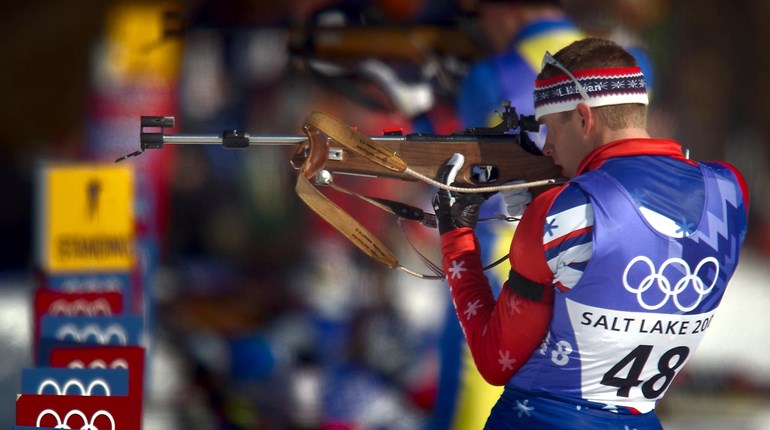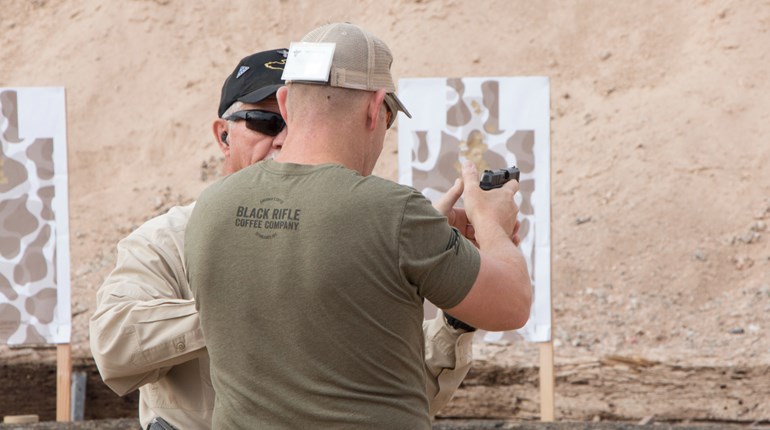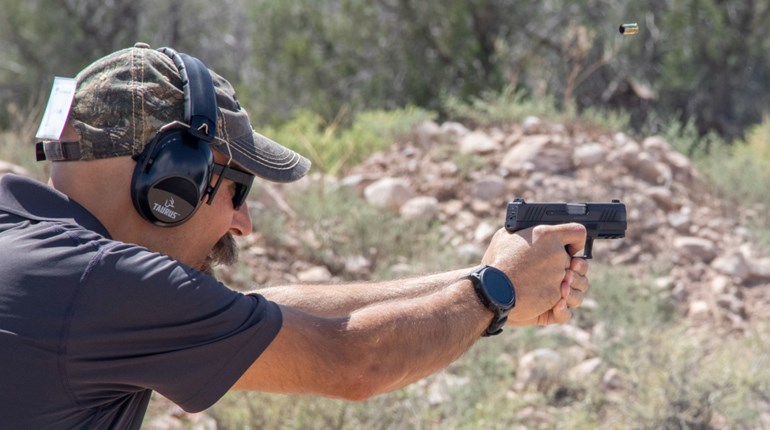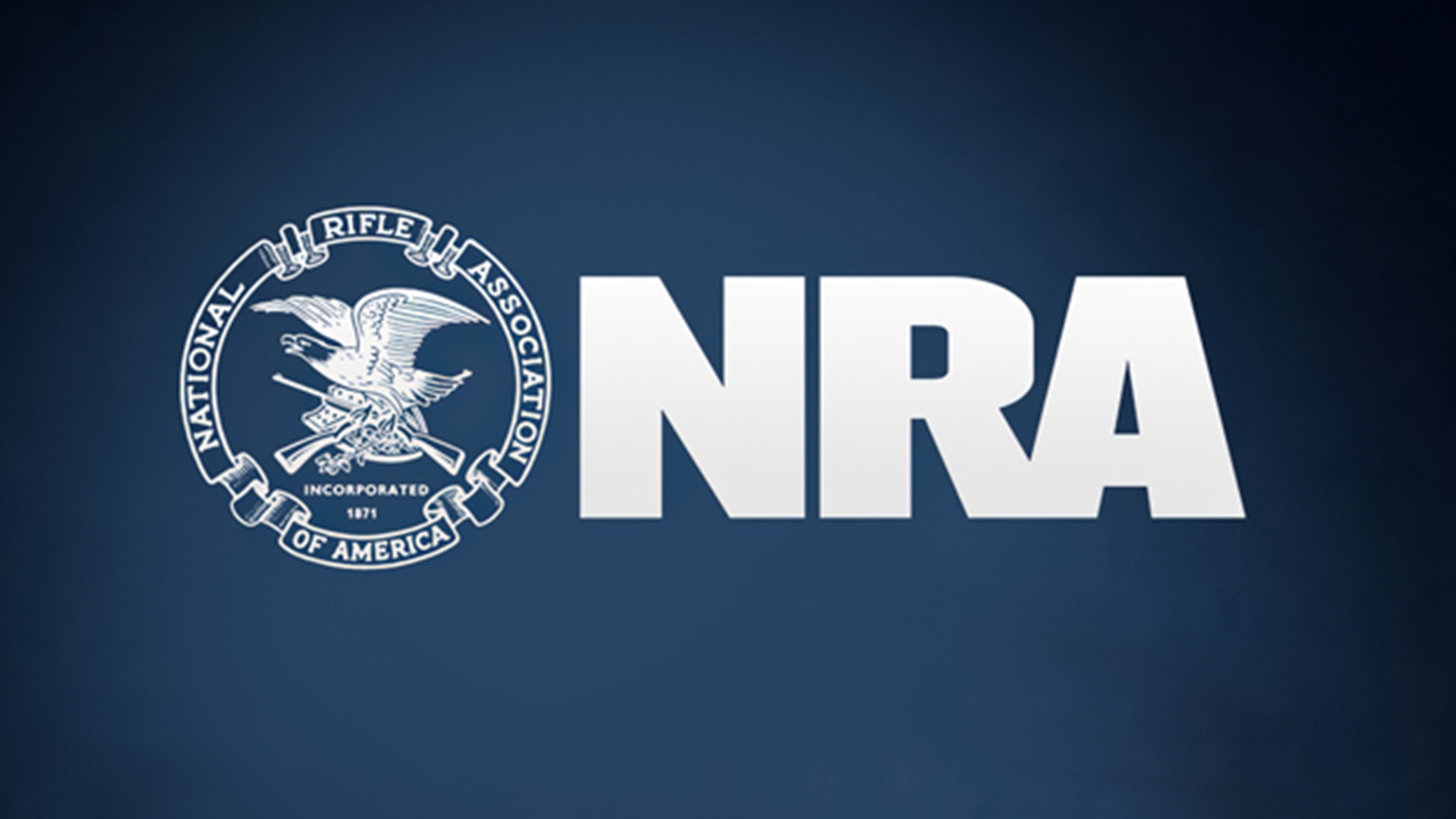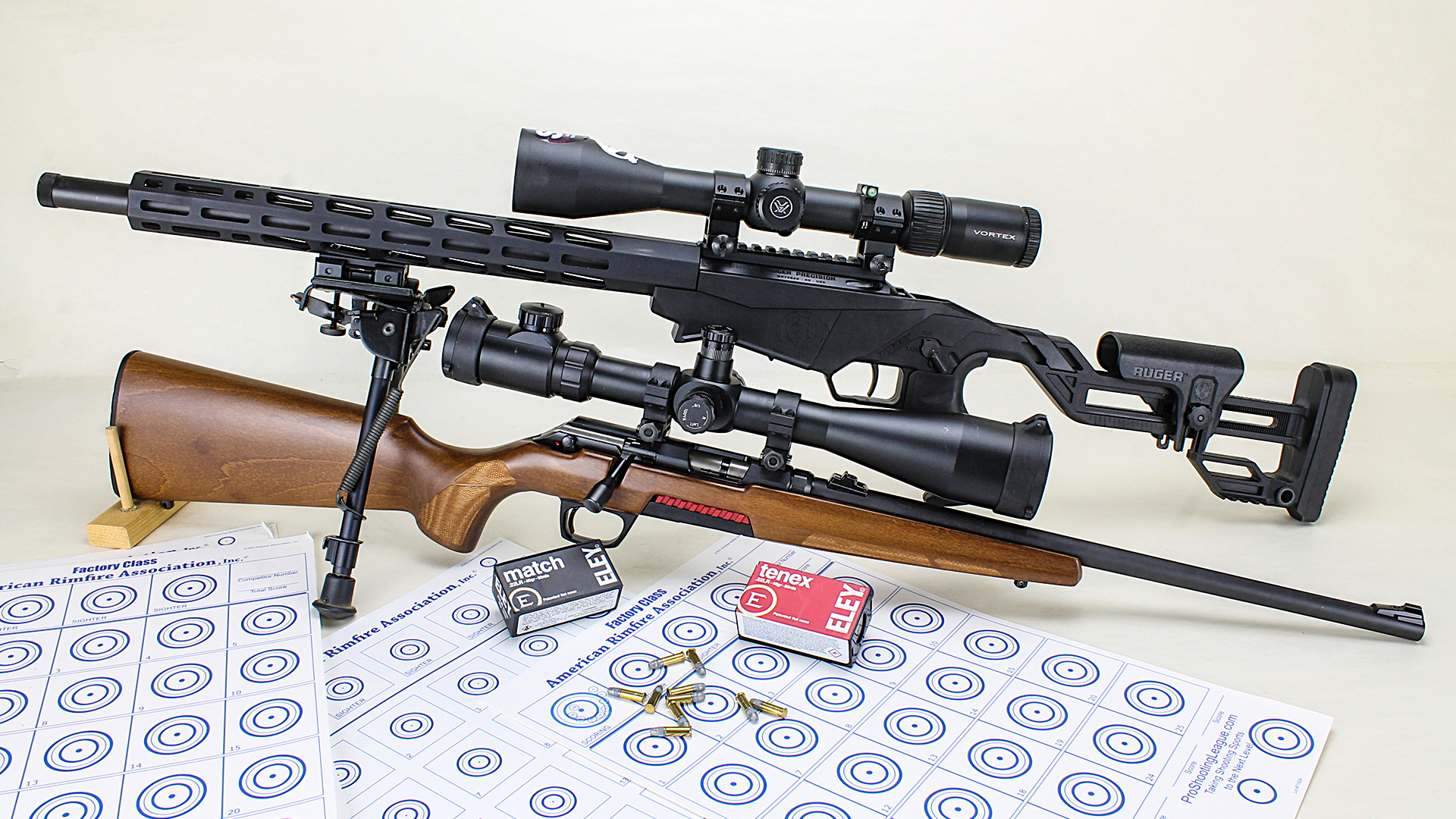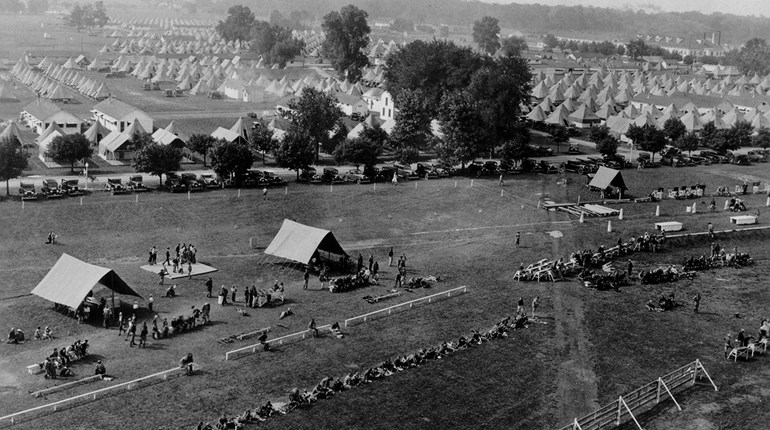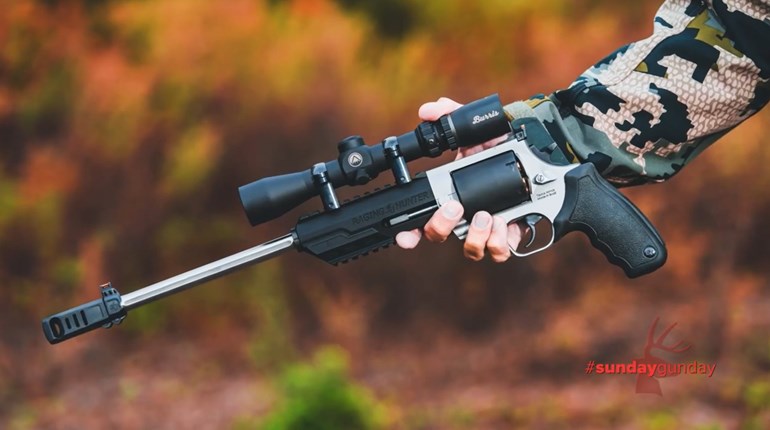
Although this article is about writing USPSA- and Steel Challenge-focused content, many of the tips outlined here are universal to writing articles about any shooting sports discipline, from Cowboy Action to Sporting Clays—Ed.
Aren’t we blessed to live in a country where we can own firearms and use them in the sports we love? And every year, manufacturers come out with something new—new grips, a new trigger, an improved scope, a better slide, a new iteration of the 1911—along with enough other new bells and whistles to make your head spin (and your mouth water). There are new clubs, too, and new ranges, more and better stages and shooting events—heck, the fun simply never ends.
So how do we get the word out? Well, there is a lot of social media, the USPSA DownRange weekly newscast and multiple podcasts for the plugged-in, plus the USPSA website; however, some people still treasure the magic of the printed word, thanks to Johannes Gutenberg’s wonderful invention of the printing press in the late 1440s, which revolutionized the world. This is where you come in.
WHY SHOULD I WRITE?
The USPSA magazine is issued to members as a benefit, and it is written for and available to our current members, both as a print copy and online. It is written specifically for and about practical shooting and Steel Challenge—and it is written by USPSA members. As a non-profit organization, USPSA doesn’t have paid writers on staff who crisscross the country covering the events, personalities and innovations that make our dual sports unique and exciting. All the articles you will find in each issue of the magazine—with few, if any, exceptions—have been written by our members.
WHY ME?
USPSA members are the ones who drive the organization. You are the ones who are out in the field, in the heat, the wind, rain and snow, participating, working stages, watching the action, doing match setup and tear-down, trying new techniques and new equipment. You are the eyes and ears for those who want to hear more about any and all aspects of practical shooting. In all my years on the USPSA staff, I have found that members are insatiable in their drive for excellence and their desire to improve. We need to pass on our knowledge to others, not just the newbies and juniors eager to rise through the classes, but to all USPSA members. Who knows when an article, a paragraph or even a sentence can bring someone that sudden “Aha!” moment? You can provide that moment.
WHAT DO I WRITE?
If you look back at some past articles, you will find that recent major matches, area matches and Nationals are covered, but also charity matches and different outreach events, as well as the people—famous and not-as-famous—who have supported and driven USPSA and Steel Challenge to new heights. There are articles on health and nutrition, training and sports psychology, both the physical and the mental games that competitors use to help them succeed. You will also find articles on new equipment, targets and the occasional book review, both fiction and non-fiction—and these are the articles you can write. You just need to keep your eyes, ears and mind open to the potential within your reach. Was there a USPSA state or sectional match you attended recently that really impressed you? Is there a new club going up near you that is starting from the ground up? Is there someone at your club who has worked from dawn to dark every day before and after your matches for the last decade or more? Has someone you know who has dedicated their entire lifetime to working and shooting our sport “left the range?” These are all potential articles.
HOW DO I GET STARTED?
Your starting point should be a thorough reading of the USPSA contributor guidelines, which have been written specifically for people like you who are thinking of submitting an article. The following are the most important points:
- Your article should be between 800 and 2,000 words; longer items, especially ones written on major matches such as USPSA Area championships, will be accepted at the editor’s discretion.
- Photos need to be high resolution; screen shots from videos or downloads from social media are not suitable. Also, they need to be submitted separately, not embedded in the text.
- Label everything and everybody. That includes your name and USPSA number, ditto for your photographer, and double-ditto for anyone in your pictures. We don’t want to have a perfectly splendid picture of someone in mid-fire with brass flying and have no idea who it is.
- For a match article, you need to include a list of the winners according to Appendix A2 of the current USPSA rulebook.
- All articles are subject to editing for spelling, punctuation or clarity.
It is also helpful to read past articles to get some ideas about what has been printed. Which articles caught your eye, what did you like about them, what would you have added or left out and what could you have written better? Then, keep your eyes and ears open—you never know when or where that potential article will present itself.
If you want to write an article about a major USPSA or Steel Challenge match, be sure to check with the Match Director to see if anyone else has been asked to cover it. If so, you may want to choose another aspect of the match, such as a personality piece about a special competitor or team, or inform readers how the match came to life, from the initial plan to match day. If you decide on a personality piece, check with your subject(s) to be sure they are amenable to being interviewed or shadowed—and be doubly sure you don’t distract them or otherwise “throw off their groove” when they are competing. Word will get around, and you won’t be invited to do another piece.
WRITE WHAT YOU KNOW, KNOW WHAT YOU WRITE
Just as a theologian wouldn’t write about digging an oil well or a brain surgeon about the Indianapolis 500, don’t write about something you haven’t experienced. If you are strictly a Multigun competitor, it’s not a good idea to write about rimfire shooting in Steel Challenge—at least, until you’ve tried it. Likewise, if you’ve heard about the brand-new Fireball 300, you should test it out before you write about it. Readers want facts and information, not seat-of-the-pants conjecture and wishful thinking.
Speaking of facts, the time to check your facts is before you submit the article, not after it’s gone to print. If Whatashot Manufacturing is coming out with a brand-new set of grips and you’ve tried them on your own gun, you may want to write a review—but first, find out more from the company about these new grips, such as their compatibility with which guns, what colors are available, the release date, ordering information, phone numbers and website for contact. Never guess on this.
The same applies to personality pieces. Check your facts with your subject, and be sure your quotes are correct; as a courtesy, send the person a copy of the article for their approval before you send it to us. Most importantly, check that names—both personal and/or company—are spelled correctly. There is nothing more embarrassing to you, and more irritating to the subject, than to see that you spelled Whatashot as Whatassnot, or that you spelled Joe Doaks as Joe Doakiss—or worse, Joe Croaks. Ouch!
With regard to quotes, some competitors may have a bit more salt to their language than is acceptable for publication. Remember, USPSA is a family-oriented sport, and the articles are read by men and women competitors, young and old. If you think the quote you got on the range might be off-color, offensive or something else that would have had your Mama grabbing a bar of soap, you can tone it down with an indirect quote, like, “Joe said he found Stage 4 extremely challenging,” instead of a direct quote that might embarrass Joe seeing it in print. Be kind and keep your article clean.
KEEP YOUR WRITING EXCITING!
How many times have you read the first page of an article or the first chapter of a book and found that you couldn’t get into it, no matter how you tried? Watching rain trickling down the window would hold your attention better, right? Don’t let that happen to your article. It’s especially important in this day and age of information coming at you at about warp nine 24/7/365 that you get your reader’s attention, and keep it.
Like fishing for salmon or trout, you need to bait your hook with “something shiny”—something more than “on (date), the (club) at (city/state) held the (match name) with (so many) people shooting (number) courses and (number) rounds.” Exciting? Meh. It’s important to to have the facts, but you really need to get the reader’s attention for more than a polite nibble before they turn the page. If you are writing about a particularly interesting major match, you want the reader to get the feeling of excitement, the impatient shifting of competitors waiting for the first call, the staccato crackle of the first shots, the pungent tang of burning gunpowder in the morning breeze—well, you get the picture. That’s what readers want, to “get the picture” and wish they’d been there. You want them to catch your enthusiasm and start making plans for next year’s match.
Likewise, if you are writing about a special person or group of people in the sport, make them come alive to the reader. Don’t put them on a pedestal—after all, we all put our pants on one leg at a time—but at the same time, show the readers why you admire and want to emulate this person or that, both for their shooting prowess and for their humanity, for their kindness, for instance, or for their willingness to help others, their charity or their sense of humor (as many of you know, I never met a pun I didn’t like). Maybe they have a unique hobby—painting, woodworking, restoring old cars—or they spend time mentoring young shooters, they visit hospitals with books or knitted blankets, or they raise prize vegetables—all of these are points of connection between the subject of your article and your readers.
READ, AND REREAD, BEFORE YOU SUBMIT
No matter how well-thought-out your article may be (and this is true of all of us), there is always room for improvement. Do your paragraphs go on for two pages? Are your sentences too long? Not long enough? Do you get your point across in a clear manner, or are there parts that could be confusing? It’s often a good idea to have someone else read your article before you submit it, especially a friend who will be absolutely honest with you.
WATCH YOUR DEADLINES
Deadlines are there for a purpose.This gives us time to select and proof the articles, select the pictures that are most appropriate, and fit everything in place before it is published. This is especially important when you have an article whose timeliness is paramount, such as for a major match. Readers don’t want a tantalizing story about a really great match and decide they want to go to the next one—but the competition was eight months ago and the registration for the upcoming match is already closed.
DON’T SWEAT THE SMALL STUFF
Is that word spelled with one “s” or two? Is it “i” before “e” or the other way around? Don’t worry about it, after all, nobody’s perfect, even with a spell-checker. Each article submitted is edited to mop up the occasional puddle of purple prose, clarify that sentence where you know what you want to say but it just won’t “gel,” or add punctuation for the commaphobic.
Be alert, keep your eyes open and know that you, too, have the potential for the “write” stuff.
Article from the May/June 2024 issue of USPSA’s magazine.













